DNVN - On December 24, Mr. Yury Borisov, head of the State Space Agency Roscosmos, said that Russia has proposed a plan to carry out 15 launches of Angara rockets in the period from 2027 to 2033, to serve the project of building the Russian Orbital Station (ROS).
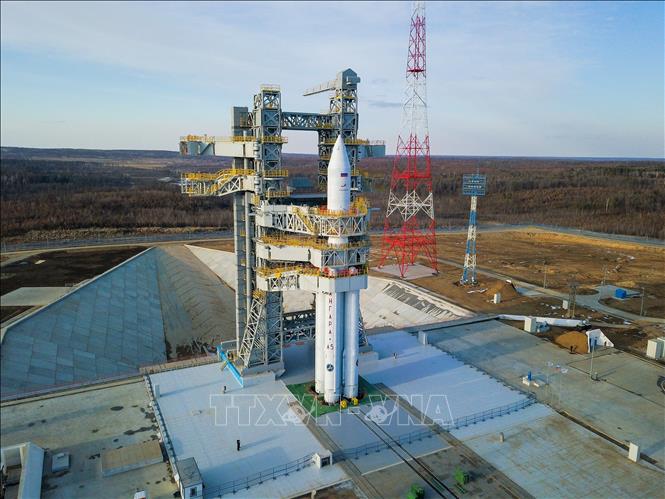 The Angara-A5 heavy-lift rocket is placed on the launch pad at the Vostochny cosmodrome in the Amur region, Russia on April 8, 2024. Photo: AFP/TTXVN
The Angara-A5 heavy-lift rocket is placed on the launch pad at the Vostochny cosmodrome in the Amur region, Russia on April 8, 2024. Photo: AFP/TTXVNThis project is considered an important step forward, affirming Russia's ambition to expand its influence in the field of space exploration.
According to Borisov, this plan is a big challenge. In the period of 2027-2033, Russia will carry out 15 launches of heavy Angara rockets and 19 launches of Progress cargo ships to transport the necessary modules and equipment into orbit, serving to complete ROS. Russia also plans to build a new spaceport and improve the underground infrastructure system to meet the technical standards of the project.
As for the location, the new spaceport is planned to be located in eastern Russia, near the Vostochny Cosmodrome. This will become the main hub for launches of Angara rockets, which are designed to replace the Proton and Soyuz rockets. Borisov affirmed that the port will ensure the ability to support continuous launch operations and meet the high technical requirements of the ROS project.
In addition to launching rockets, Russia is focusing on developing a new cargo spacecraft. According to Borisov, this spacecraft has been transferred to the Cosmonaut Training Center to start crew training. This type of spacecraft is designed with greater carrying capacity and higher reliability than previous models.
More than 50 space industry enterprises from across the country will participate in the project. They will be responsible for the production of modules, technical equipment and support for the maintenance of the project infrastructure. "This project is not only of strategic importance for the Russian space industry, but also provides opportunities for the development of new technologies and the strengthening of Russia's position in the global space competition," Borisov stressed.
In addition to building ROS and launching rockets, Russia also aims to expand international cooperation in the space sector, especially with BRICS countries such as India and China. These partnerships not only support cost and technology sharing, but also help Russia increase its influence in this field.
The development of the Russian Orbital Station is part of Russia's long-term strategy to gradually reduce dependence on the International Space Station (ISS) and move towards building an independent vision in conquering space, focusing on autonomous and innovative projects.
Ganoderma (t/h)
Source: https://doanhnghiepvn.vn/cong-nghe/nga-len-ke-hoach-thuc-hien-15-vu-phong-ten-lua-angara-tu-nam-2027-den-2033/20241225093206172


![[Photo] Prime Minister Pham Minh Chinh receives Ambassador of the French Republic to Vietnam Olivier Brochet](https://vphoto.vietnam.vn/thumb/1200x675/vietnam/resource/IMAGE/2025/5/13/f5441496fa4a456abf47c8c747d2fe92)
![[Photo] Many people in Hanoi welcome Buddha's relics to Quan Su Pagoda](https://vphoto.vietnam.vn/thumb/1200x675/vietnam/resource/IMAGE/2025/5/13/3e93a7303e1d4d98b6a65e64be57e870)
![[Photo] President Luong Cuong awarded the title "Heroic City" to Hai Phong city](https://vphoto.vietnam.vn/thumb/1200x675/vietnam/resource/IMAGE/2025/5/13/d1921aa358994c0f97435a490b3d5065)
![[Photo] President Luong Cuong attends the inauguration of the international container port in Hai Phong](https://vphoto.vietnam.vn/thumb/1200x675/vietnam/resource/IMAGE/2025/5/13/9544c01a03e241fdadb6f9708e1c0b65)




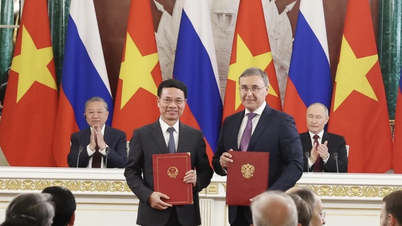



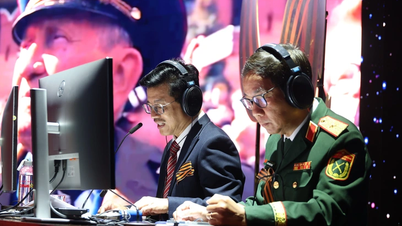

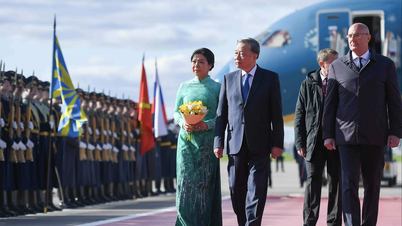















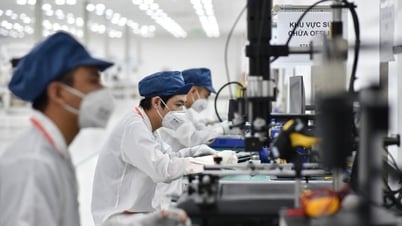




















































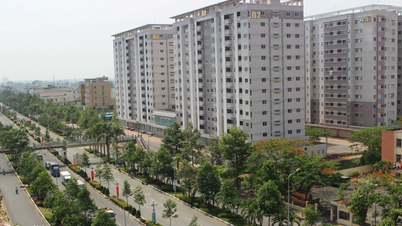












Comment (0)